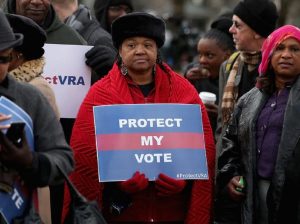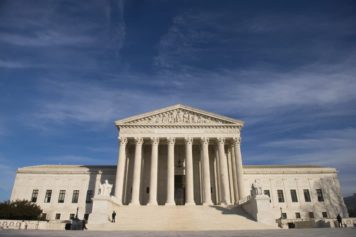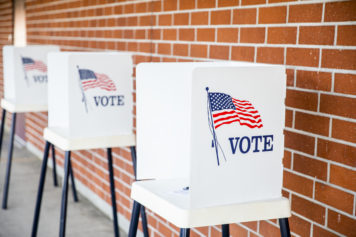
Getty Images
In a decisive blow to the GOP-controlled state government in North Carolina, a federal appeals court struck down the state’s legislative maps on Wednesday because they are an unconstitutional form of racial gerrymandering. As Think Progress reported, the Fourth Circuit Court’s opinion in Covington v. North Carolina–written by a three-judge panel–is not as harsh in tone as the decision two weeks ago to by the court to wipe out many key elements of North Carolina’s voter suppression law. In that ruling, the court said that GOP lawmakers used data on racial voting patterns in a willful effort to craft legislation in order to block Black people from voting.
In 2012, Mitt Romney won the state by a thin margin of two points. Nevertheless, die to the favorability of the state legislative map, as Think Progress noted, the Republicans were able to capture a supermajority on both chambers of the legislature. For the lawmakers, the key was to pack as many voters of color as possible into as few districts as possible in order to maximize white GOP political advantage.
In the opinion, written by Judge James A. Wynn Jr., who was appointed by President Obama in 2010, the court found that “race was the predominant criterion in drawing all of the challenged districts,” and the state did “not [show] that their use of race to draw any of these districts was narrowly tailored to further a compelling state interest.” The opinion said that lawmakers instructed private counsel to “more than triple the number of majority-black General Assembly districts, from nine to thirty four.” In addition, the court wrote, “political considerations played a primary role in the drawing of the challenged districts.” This stands in contrast to Republican leaders who claimed “politics was an afterthought.”
Less than a week earlier, the public advocacy group Common Cause sued North Carolina over racially gerrymandered congressional districts, as Mother Jones reported. Two weeks ago, another federal three-judge panel invalidated a number of North Carolina’s voter suppression measures, including voter ID, a same-day registration ban and restrictions on early voting. The state’s voter ID law had gained the reputation as the most sweeping in the country.
However, this most recent decision will not have an impact on the November election according to Mother Jones, as North Carolina voters will be compelled to cast their ballot under the current racially-gerrymandered boundaries the court has found to be illegal. Primaries have already taken place, and there simply is not enough time between now and the November election to redraw the voting districts.
Moreover, these two wins in North Carolina for supporters and advocates for civil rights and voting rights take place within the context of a string of voting rights victories across the nation. In July and August, Democratic- and Republican-appointed federal judges struck down GOP efforts to limit voting rights in six states, as The Nation reported. Decisions in North Carolina, Wisconsin, Texas, Michigan, Kansas, and North Dakota overturned draconian laws requiring voter ID, cutting early voting and blocking voter registration. Since the then-conservative dominated Supreme Court eviscerated an important provision of the Voting Rights Act in 2013, voter suppression efforts had gained steam throughout the country.
And yet–under this backdrop of courts thwarting white Republican machinations against the rights of Black people–RNC Chairman Reince Priebus and Co-Chair Sharon Day recently released a statement on the 51st anniversary of the Voting Rights Act.
“The Voting Rights Act of 1965 was a monumental step forward in ensuring equal rights for every American, and today we honor not just that legislation, but also those who devoted themselves to its passage and sacrificed to see it become law. Guaranteeing the right of every American to vote is a staple of our democracy, and the Republican Party, just as it did in 1965, remains committed to ensuring access and fairness at the ballot box. Through Republican efforts, Americans now have increased voting opportunities through absentee balloting and early voting measures, and as we remember this day in American history, we stand firm in protecting future generations’ right to vote” the statement read.
“As the Party of opportunity and fairness, we honor that day in 1965 when barriers of prejudice gave way to civic justice,” Day said. “Today we pay tribute those leaders who courageously fought to give millions of Americans a voice at the polls, and declare once again our Party’s mission of defending the constitutional rights of every American.”

